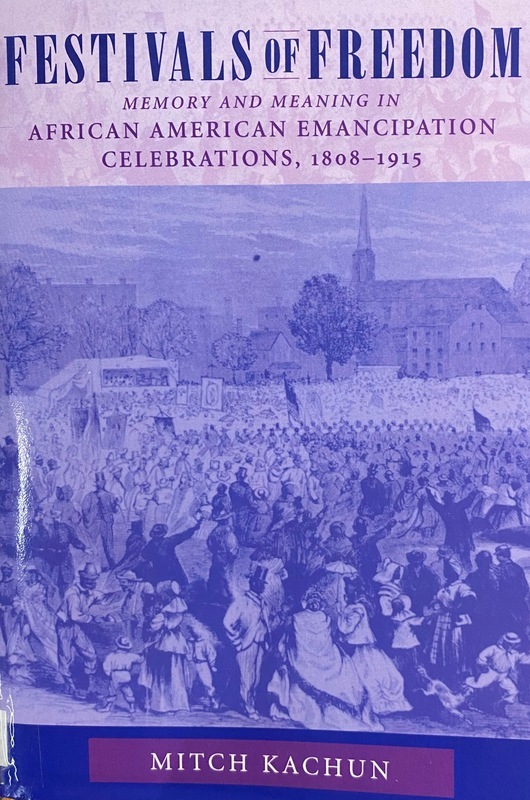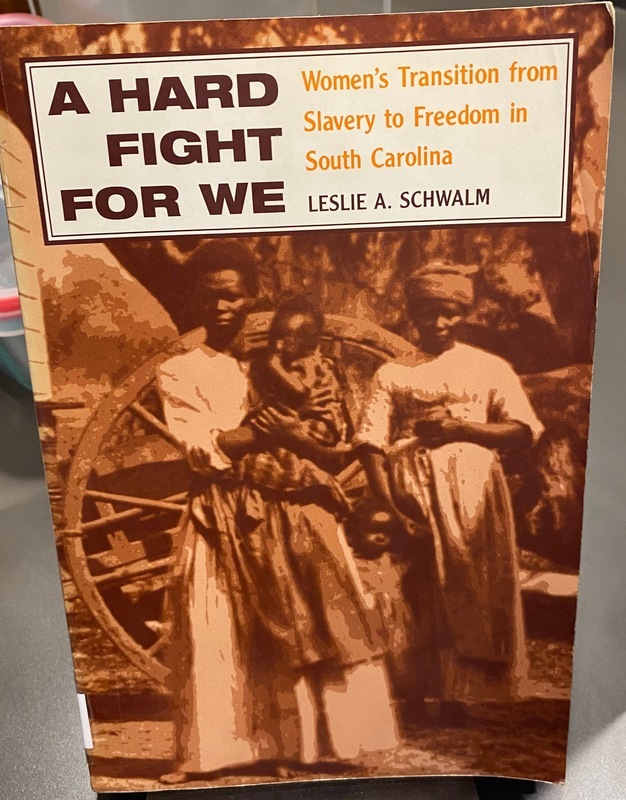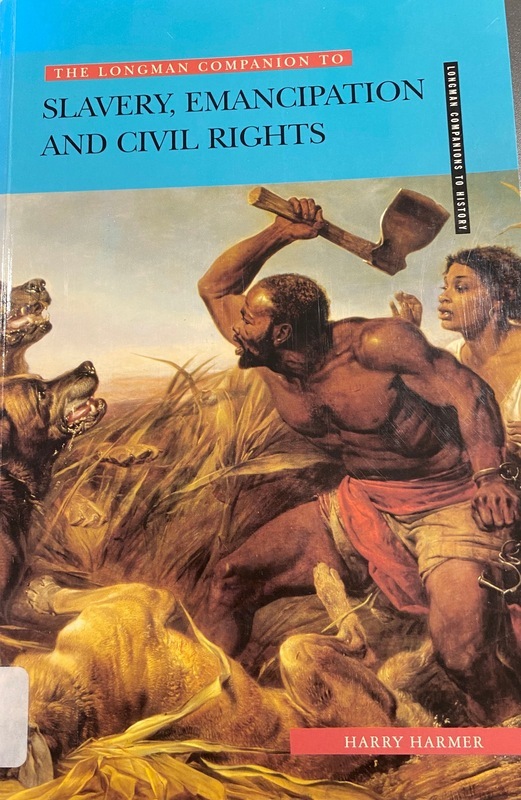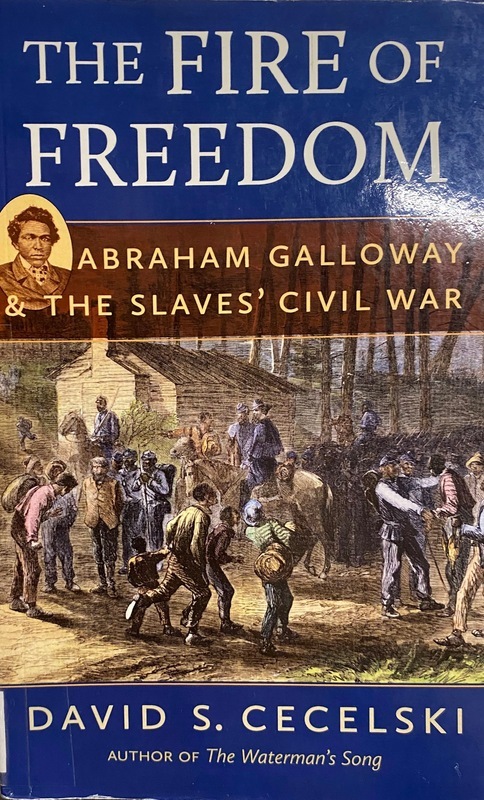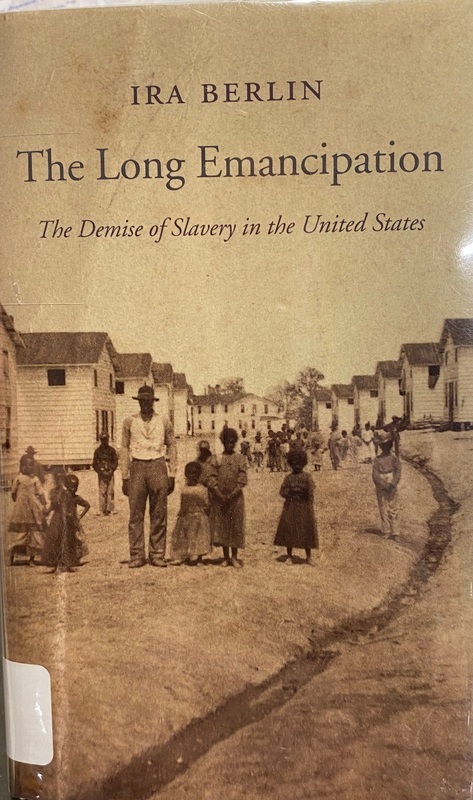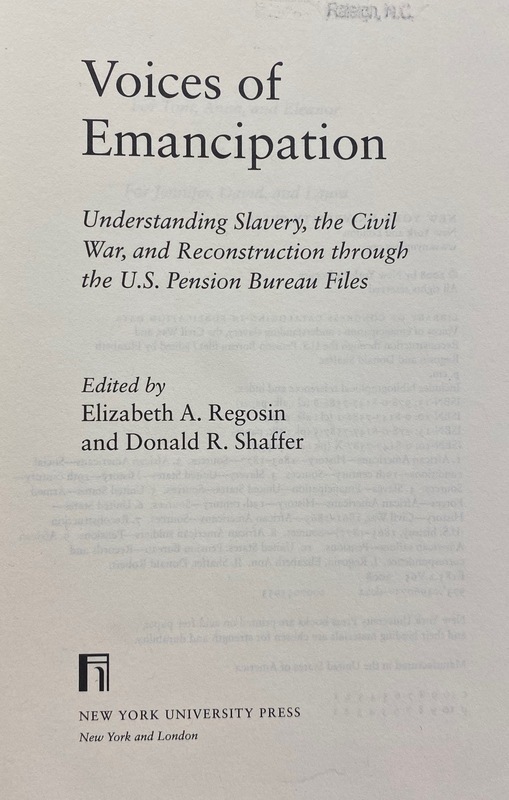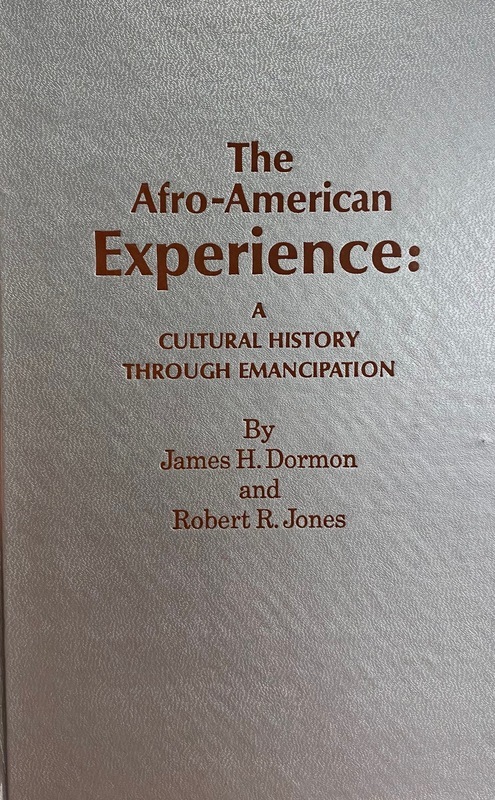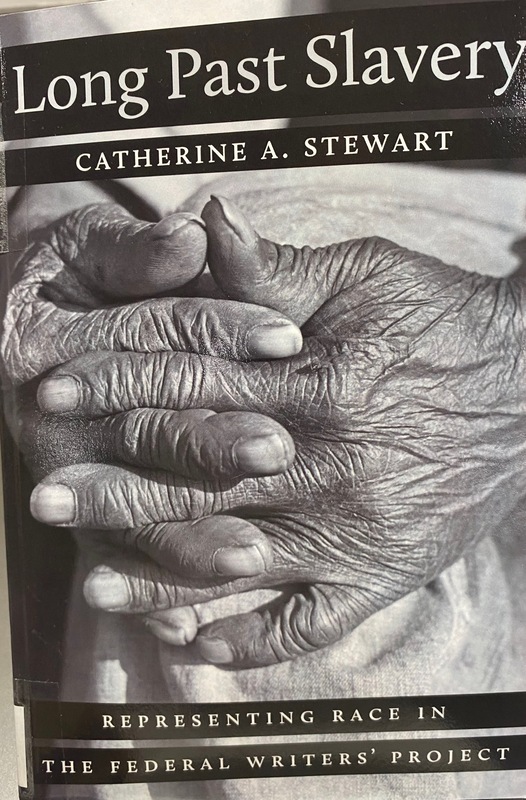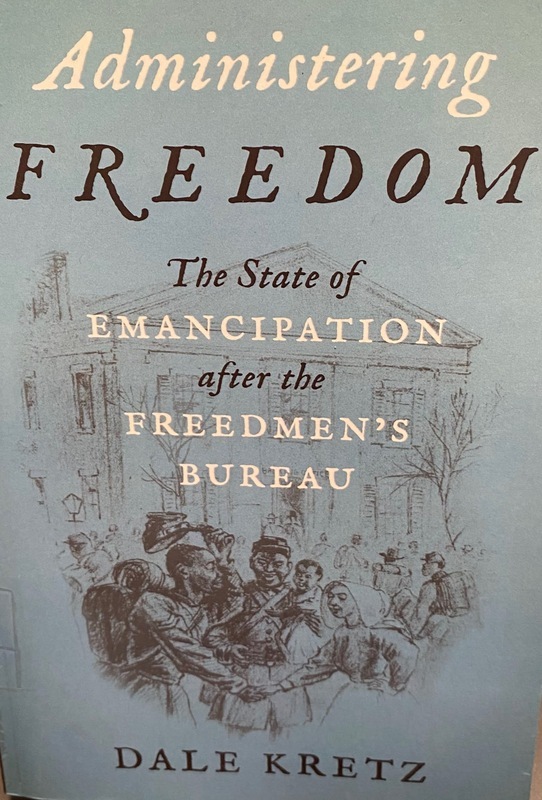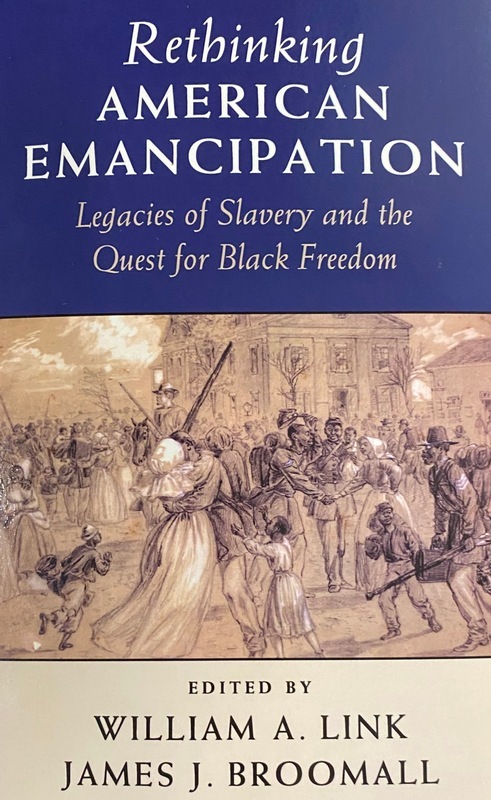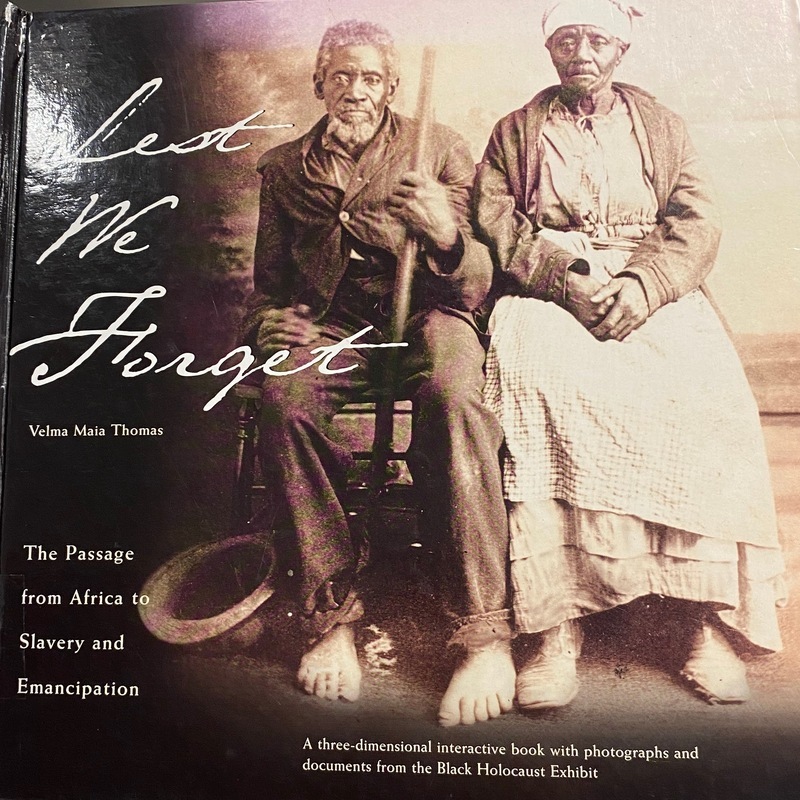COMPOUND OBJECT (12 Items)
Juneteenth Print Resources Item Info
Festivals of Freedom
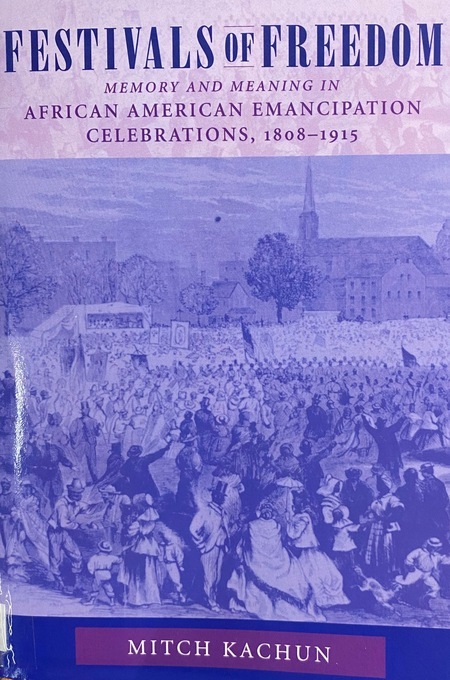
Juneteenth Print Resources
-
Item 1 of 12
- Title:
- Festivals of Freedom
- Creator:
- Kachun, Mitchell A. (Mitchell Alan)
- Date Created:
- 1808-1915
- Description:
- Summary: "In this study, Mitch Kachun explores the multiple functions and contested meanings of African American emancipation celebrations, from the abolition of the slave trade to the fiftieth anniversary of U.S. emancipation." "Based on extensive research in African American newspapers and oration texts, this book retraces a vital if often overlooked tradition in African American political culture and addresses important issues about black participation in the public sphere. By illuminating the origins of black Americans' public commemorations, it also helps explain why there have been increasing calls in recent years to make the "Juneteenth" observance of emancipation an American - not just an African American - day of commemoration."
- Subjects:
- African Americans--Anniversaries, etc. African Americans--Politics and government--19th century. African Americans--Politics and government--20th century. Enslaved persons--Emancipation--United States--Anniversaries, etc. Festivals--United States--History--19th century. Festivals--United States--History--20th century. Memory--Political aspects--United States--History. Memory--Social aspects--United States--History. Political culture--United States--History--19th century. Political culture--United States--History--20th century.
- Location:
- United States
- Source:
- State Library of North Carolina. Government and Heritage Library Print collection
- Source Identifier:
- 326.80973 K11f
- Type:
- Book
- Format:
- book
Source
- Preferred Citation:
- "Festivals of Freedom", Juneteenth Resources Digital Collection, State Library of North Carolina
- Reference Link:
- https://www.ncpedia.org/sites/default/files/juneteenth/items/juneteenth081.html#juneteenth082
Rights
- Rights:
- Copyright ©2003. University of Massachusetts Press. All rights reserved.
A Hard Fight For...
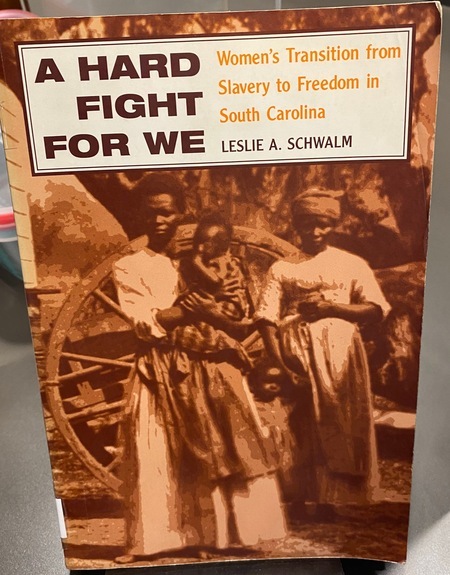
Juneteenth Print Resources
-
Item 2 of 12
- Title:
- A Hard Fight For We : Women's Transition From Slavery to Freedom in South Carolina
- Creator:
- Schwalm, Leslie A. (Leslie Ann)
- Date Created:
- 1820-1961
- Description:
- Summary: Focusing on slave women on the rice plantations of low-country South Carolina, Leslie Schwalm offers a thoroughly researched account of their vital roles in antebellum plantation life and in the wartime collapse of slavery, and their efforts as freedwomen to recover from the impact of war while redefining life and labor in the postbellum period.
- Subjects:
- African American women--South Carolina--History--19th century. Enslaved persons--Emancipation--South Carolina. Enslaved persons--Emancipation--South Carolina. Enslaved persons--Emancipation--South Carolina. Reconstruction (U.S. history, 1865-1877)--South Carolina.
- Location:
- South Carolina, United States
- Source:
- State Library of North Carolina. Government and Heritage Library Print collection
- Source Identifier:
- 975.700496 S398h
- Type:
- Book
- Format:
- book
Source
- Preferred Citation:
- "A Hard Fight For We : Women's Transition From Slavery to Freedom in South Carolina", Juneteenth Resources Digital Collection, State Library of North Carolina
- Reference Link:
- https://www.ncpedia.org/sites/default/files/juneteenth/items/juneteenth081.html#juneteenth083
Rights
- Rights:
- Copyright ©1997. University of Illinois Press. All rights reserved.
The Longman Companion to...
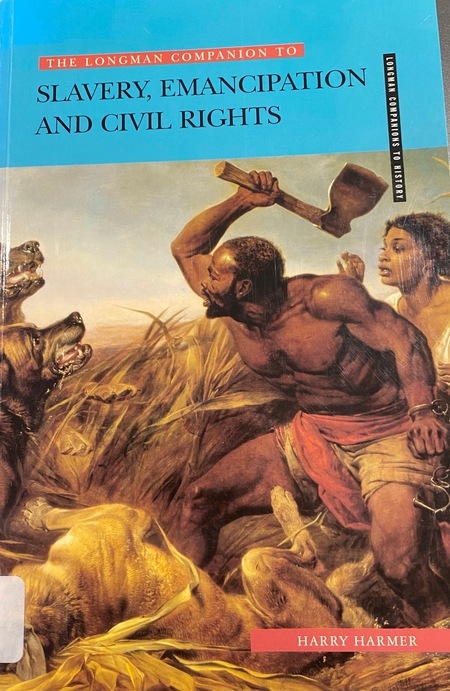
Juneteenth Print Resources
-
Item 3 of 12
- Title:
- The Longman Companion to Slavery, Emancipation and Civil Rights
- Creator:
- Harmer, H. J. P.
- Description:
- Summary: "A reference guide which provides essential background information to the African Diaspora in the Americas and Caribbean from the 15th to the 20th centuries. Central to the book are detailed chronologies on the development and decline of the slave trade, slavery in colonial North and South America, the Caribbean and the United States, movements for emancipation, and the progress of black civil rights. Separate sections look at the long-running resistance against slavery and the black civil rights movements in the Americas and the Caribbean, with a comparative chronology of apartheid in South Africa. Supported by biographies of over 100 key individuals and a full glossary providing definitions of crucial terms, expressions, ideas and events, this is a reference for anyone interested in the historical experience of slavery."
- Subjects:
- Civil rights Liberty Slavery
- Source:
- State Library of North Carolina. Government and Heritage Library Print collection
- Source Identifier:
- 305.8 H287l
- Type:
- Book
- Format:
- book
Source
- Preferred Citation:
- "The Longman Companion to Slavery, Emancipation and Civil Rights", Juneteenth Resources Digital Collection, State Library of North Carolina
- Reference Link:
- https://www.ncpedia.org/sites/default/files/juneteenth/items/juneteenth081.html#juneteenth084
Rights
- Rights:
- Copyright ©2001.Longman, an imprint of Pearson Education. All rights reserved.
The Fire of Freedom...
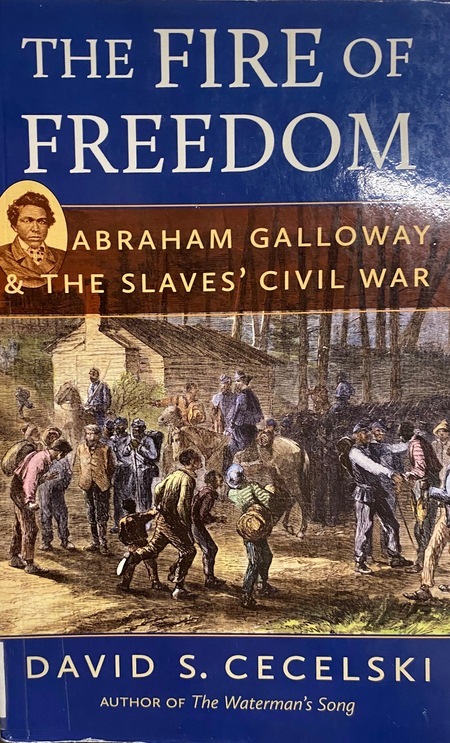
Juneteenth Print Resources
-
Item 4 of 12
- Title:
- The Fire of Freedom : Abraham Galloway & the Slaves' Civil War
- Creator:
- Celeski David J.
- Date Created:
- 1837-1870
- Description:
- Summary: "Abraham H. Galloway (1837-70) was a fiery young slave rebel, radical abolitionist, and Union spy who rose out of bondage to become one of the most significant and stirring black leaders in the South during the Civil War. Throughout his brief, mercurial life, Galloway fought against slavery and injustice. He risked his life behind enemy lines, recruited black soldiers for the North, and fought racism in the Union army's ranks. He also stood at the forefront of an African American political movement that flourished in the Union-occupied parts of North Carolina, even leading a historic delegation of black southerners to the White House to meet with President Lincoln and to demand the full rights of citizenship. He later became one of the first black men elected to the North Carolina legislature. Long hidden from history, Galloway's story reveals a war unfamiliar to most of us. As David Cecelski writes, "Galloway's Civil War was a slave insurgency, a war of liberation that was the culmination of generations of perseverance and faith." This riveting portrait illuminates Galloway's life and deepens our insight into the Civil War and Reconstruction as experienced by African Americans in the South.
- Subjects:
- African American abolitionists--Biography. African American legislators--North Carolina--Biography. Fugitive slaves--North Carolina--Biography. Galloway, Abraham H., (1837-1870) Reconstruction (U.S. history, 1865-1877)--North Carolina. United States--History--Civil War, 1861-1865--African Americans. United States--History--Civil War, 1861-1865--Participation, African American. United States--History--Civil War, 1861-1865--Secret service.
- Location:
- New Bern, North Carolina
- Source:
- State Library of North Carolina. Government and Heritage Library Print collection
- Source Identifier:
- 326.8092 B23f
- Type:
- Book
- Format:
- book
Source
- Preferred Citation:
- "The Fire of Freedom : Abraham Galloway & the Slaves' Civil War", Juneteenth Resources Digital Collection, State Library of North Carolina
- Reference Link:
- https://www.ncpedia.org/sites/default/files/juneteenth/items/juneteenth081.html#juneteenth085
Rights
- Rights:
- Copyright ©2012. The University of North Carolina Press. All rights reserved.
The Long Emancipation :...
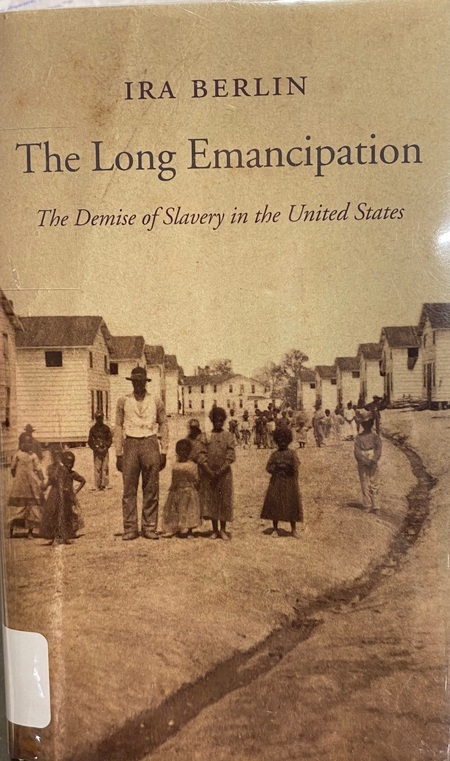
Juneteenth Print Resources
-
Item 5 of 12
- Title:
- The Long Emancipation : The Demise of Slavery in the United States
- Creator:
- Berlin, Ira
- Description:
- Summary: Perhaps no event in American history arouses more impassioned debate than the abolition of slavery. Answers to basic questions about who ended slavery, how, and why remain fiercely contested more than a century and a half after the passage of the Thirteenth Amendment. In The Long Emancipation, Ira Berlin draws upon decades of study to offer a framework for understanding slavery's demise in the United States. Freedom was not achieved in a moment, and emancipation was not an occasion but a near-century-long process - a shifting but persistent struggle that involved thousands of men and women. Berlin teases out the distinct characteristics of emancipation, weaving them into a larger narrative of the meaning of American freedom. The most important factor was the will to survive and the enduring resistance of enslaved black people themselves. In striving for emancipation, they were also the first to raise the crucial question of their future status. If they were no longer slaves, what would they be? African Americans provided the answer, drawing on ideals articulated in the Declaration of Independence and precepts of evangelical Christianity. Freedom was their inalienable right in a post-slavery society, for nothing seemed more natural to people of color than the idea that all Americans should be equal. African Americans were not naive about the price of their idealism. Just as slavery was an institution initiated and maintained by violence, undoing slavery also required violence. Freedom could be achieved only through generations of long and brutal struggle.
- Subjects:
- African American abolitionists--History. Antislavery movements--United States--History.
- Location:
- United States
- Source:
- State Library of North Carolina. Government and Heritage Library Print collection
- Source Identifier:
- 326.8 B515l
- Type:
- Book
- Format:
- book
Source
- Preferred Citation:
- "The Long Emancipation : The Demise of Slavery in the United States", Juneteenth Resources Digital Collection, State Library of North Carolina
- Reference Link:
- https://www.ncpedia.org/sites/default/files/juneteenth/items/juneteenth081.html#juneteenth086
Rights
- Rights:
- Copyright ©2015. Harvard University Press. All rights reserved.
Voices of Emancipation :...
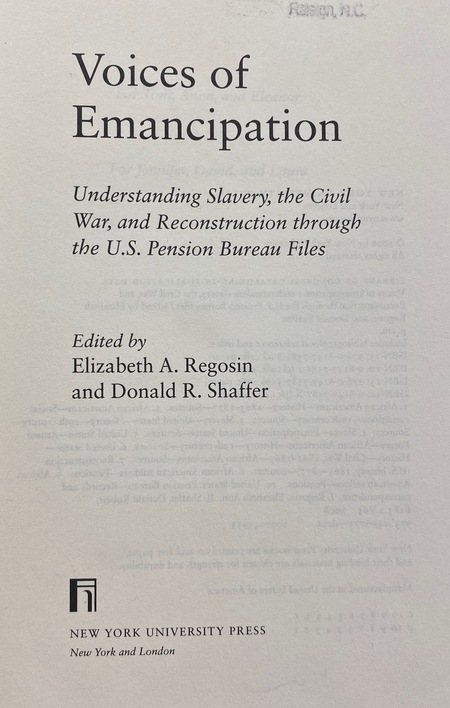
Juneteenth Print Resources
-
Item 6 of 12
- Title:
- Voices of Emancipation : Understanding Slavery, the Civil War, and Reconstruction Through the U.S. Pension Bureau Files
- Creator:
- Regosin, Elizabeth Ann and Donald Robert Shaffer
- Date Created:
- 1863-1877
- Description:
- A look at emancipation and slavery through U.S. Pension Bureau records
- Subjects:
- African Americans--History--1863-1877--Sources. African Americans--Social conditions--19th century--Sources. African American soldiers--Pensions. African American sailors--Pensions. Enslaved persons--Emancipation--United States--Sources. Reconstruction (U.S. history, 1865-1877)--Sources. Slavery--United States--History--19th century--Sources. United States--Armed Forces--African Americans--History--19th century--Sources. United States--History--Civil War, 1861-1865--African Americans--Sources.
- Location:
- United States
- Source:
- State Library of North Carolina. Government and Heritage Library Print collection
- Source Identifier:
- 973.0496073 V889
- Type:
- Book
- Format:
- book
Source
- Preferred Citation:
- "Voices of Emancipation : Understanding Slavery, the Civil War, and Reconstruction Through the U.S. Pension Bureau Files", Juneteenth Resources Digital Collection, State Library of North Carolina
- Reference Link:
- https://www.ncpedia.org/sites/default/files/juneteenth/items/juneteenth081.html#juneteenth087
Rights
- Rights:
- Copyright ©2008. New York University Press. All rights reserved.
The Afro-American experience: a...
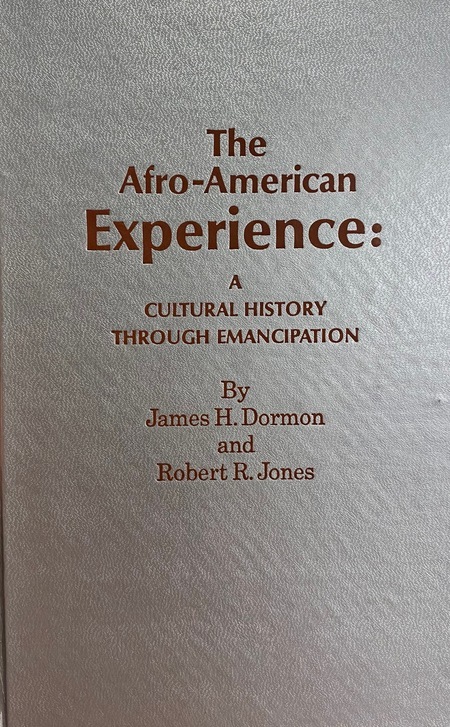
Juneteenth Print Resources
-
Item 7 of 12
- Title:
- The Afro-American experience: a cultural history through emancipation
- Creator:
- Dormon, James H. and Robert Rivers Jones
- Subjects:
- African Americans--History--To 1863.
- Source:
- State Library of North Carolina. Government and Heritage Library Print collection
- Source Identifier:
- 917.30696 D712a
- Type:
- Book
- Format:
- book
Source
- Preferred Citation:
- "The Afro-American experience: a cultural history through emancipation", Juneteenth Resources Digital Collection, State Library of North Carolina
- Reference Link:
- https://www.ncpedia.org/sites/default/files/juneteenth/items/juneteenth081.html#juneteenth088
Rights
- Rights:
- Copyright ©1974. Wiley. All rights reserved.
Free hearts and free...
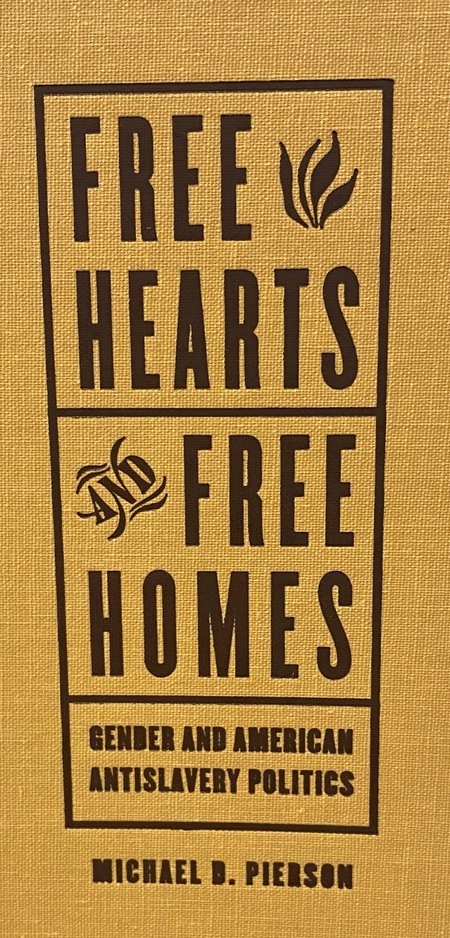
Juneteenth Print Resources
-
Item 8 of 12
- Title:
- Free hearts and free homes : gender and American antislavery politics
- Creator:
- Pierson, Michael D.
- Subjects:
- Antislavery movements--United States--History--19th century. Political culture--United States--History--19th century. Political parties--United States--History--19th century. Sex role--Political aspects--United States--History--19th century. Women--Political activity--United States--History--19th century. Women abolitionists--United States--History--19th century. United States--Politics and government--1849-1861.
- Location:
- United States
- Source:
- State Library of North Carolina. Government and Heritage Library Print collection
- Source Identifier:
- 326.80973 P624f
- Type:
- Book
- Format:
- book
Source
- Preferred Citation:
- "Free hearts and free homes : gender and American antislavery politics", Juneteenth Resources Digital Collection, State Library of North Carolina
- Reference Link:
- https://www.ncpedia.org/sites/default/files/juneteenth/items/juneteenth081.html#juneteenth089
Rights
- Rights:
- Copyright ©2003. The University of North Carolina Press. All rights reserved.
Long past slavery :...
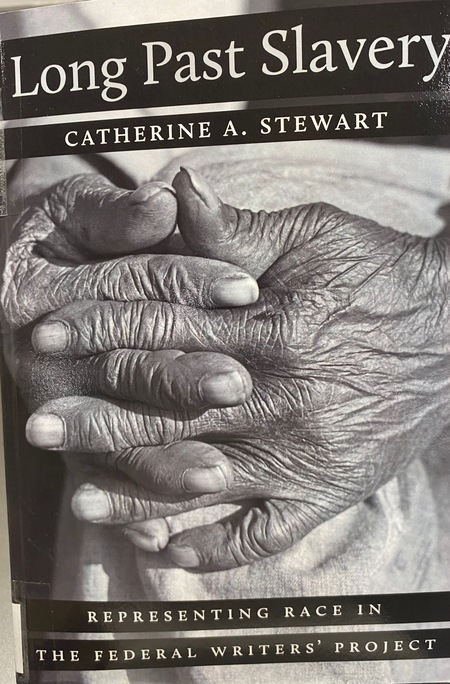
Juneteenth Print Resources
-
Item 9 of 12
- Title:
- Long past slavery : representing race in the Federal Writers' Project
- Creator:
- Stewart, Catherine A.
- Description:
- Summary: From 1936 to 1939, the New Deal's Federal Writers' Project collected life stories from more than 2,300 former African American slaves. In this examination of the project and its legacy, Catherine A. Stewart shows it was the product of competing visions of the past, as ex-slaves' memories were used to craft arguments for and against full inclusion of African Americans in society.
- Subjects:
- African Americans--Psychology--History--20th century. African Americans--Race identity--History--20th century. Collective memory--United States--History--20th century. Cultural pluralism--United States--History--20th century. United States--Race relations--History--20th century.
- Location:
- United States
- Source:
- State Library of North Carolina. Government and Heritage Library Print collection
- Source Identifier:
- 305.896 S849l
- Type:
- Book
- Format:
- book
Source
- Preferred Citation:
- "Long past slavery : representing race in the Federal Writers' Project", Juneteenth Resources Digital Collection, State Library of North Carolina
- Reference Link:
- https://www.ncpedia.org/sites/default/files/juneteenth/items/juneteenth081.html#juneteenth090
Rights
- Rights:
- Copyright ©2016. The University of North Carolina Press. All rights reserved.
Administering Freedom : The...
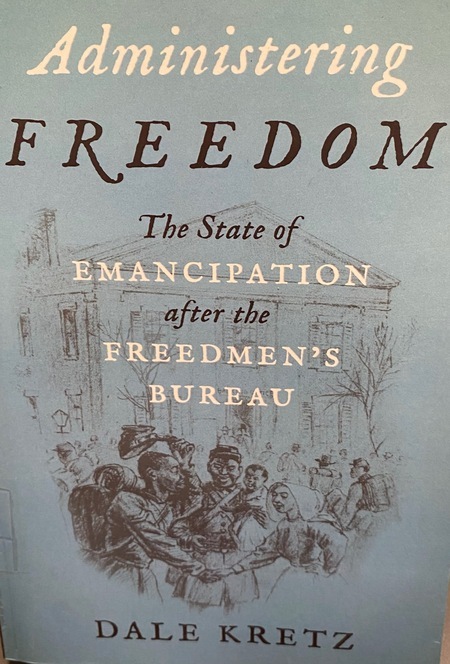
Juneteenth Print Resources
-
Item 10 of 12
- Title:
- Administering Freedom : The State of Emancipation After the Freedmen's Bureau
- Creator:
- Kretz, Dale
- Description:
- Summary: "This book offers the definitive history of how formerly enslaved men and women pursued federal benefits from the Civil War to the New Deal and, in the process, transformed themselves from a stateless people into documented citizens. As claimants, Black southerners engaged an array of federal agencies. Their encounters with the more familiar Freedmen's Bureau and Pension Bureau are presented here in a striking new light, while their struggles with the long-forgotten Freedmen's Branch appear in this study for the very first time"
- Subjects:
- African Americans--Government policy--History. African Americans--Pensions--History. Freed persons--United States--History.
- Location:
- United States
- Source:
- State Library of North Carolina. Government and Heritage Library Print collection
- Source Identifier:
- 973.0496073 K92a
- Type:
- Book
- Format:
- book
Source
- Preferred Citation:
- "Administering Freedom : The State of Emancipation After the Freedmen's Bureau", Juneteenth Resources Digital Collection, State Library of North Carolina
- Reference Link:
- https://www.ncpedia.org/sites/default/files/juneteenth/items/juneteenth081.html#juneteenth091
Rights
- Rights:
- Copyright ©2022. The University of North Carolina Press. All rights reserved.
Rethinking American Emancipation :...
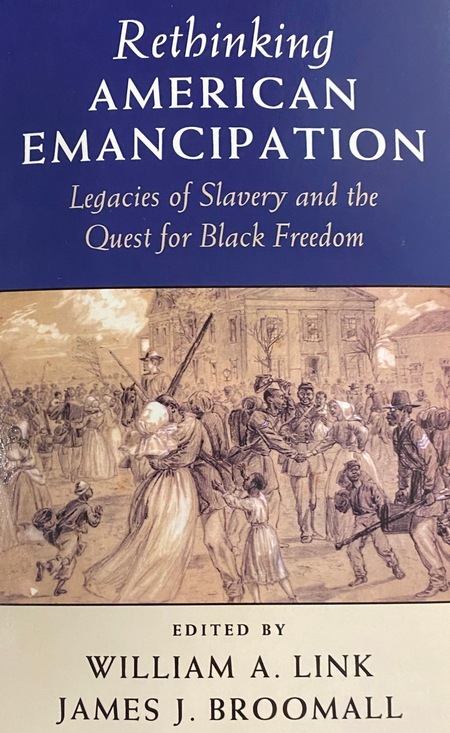
Juneteenth Print Resources
-
Item 11 of 12
- Title:
- Rethinking American Emancipation : Legacies of Slavery and the Quest for Black freedom
- Creator:
- Link, William A.
- Date Created:
- 1863
- Description:
- Summary: On January 1, 1863, Abraham Lincoln announced the Emancipation Proclamation, an event that soon became a bold statement of presidential power, a dramatic shift in the rationale for fighting the Civil War, and a promise of future freedom for four million enslaved Americans. But the document marked only a beginning; freedom's future was anything but certain. Thereafter, the significance of both the Proclamation and of emancipation assumed new and diverse meanings, as African Americans explored freedom and the nation attempted to rebuild itself. Despite the sweeping power of Lincoln's Proclamation, struggle, rather than freedom, defined emancipation's broader legacy. The nine essays in this volume unpack the long history and varied meanings of the emancipation of American slaves. Together, the contributions argue that 1863 did not mark an end point or a mission accomplished in black freedom; rather, it initiated the beginning of an ongoing, contested process.
- Subjects:
- African Americans--History--19th century. African Americans--Social conditions. Enslaved persons--Emancipation--United States. Southern States--Social conditions--19th century. United States--Race relations.
- Location:
- United States
- Source:
- State Library of North Carolina. Government and Heritage Library Print collection
- Source Identifier:
- 305.896073 R438r
- Type:
- Book
- Format:
- book
Source
- Preferred Citation:
- "Rethinking American Emancipation : Legacies of Slavery and the Quest for Black freedom", Juneteenth Resources Digital Collection, State Library of North Carolina
- Reference Link:
- https://www.ncpedia.org/sites/default/files/juneteenth/items/juneteenth081.html#juneteenth092
Rights
- Rights:
- Copyright ©2016. Cambridge University Press. All rights reserved.
Lest We Forget: The...
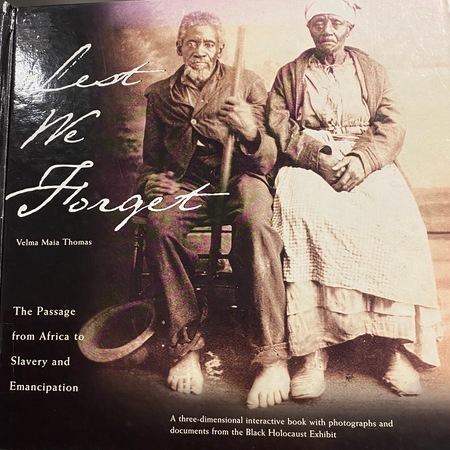
Juneteenth Print Resources
-
Item 12 of 12
- Title:
- Lest We Forget: The Passage from Africa to Slavery and Emancipation
- Creator:
- Thomas, Velma Maia
- Description:
- A three-dimensional interactive book with photographs and documents from the Black Holocaust Exhibit.
- Subjects:
- Africans--America--History--Exhibitions. Antislavery movements--United States--History--19th century--Exhibitions. Slave trade--America--History--Exhibitions. Slavery--United States--History--Exhibitions.
- Location:
- United States; Africa
- Source:
- State Library of North Carolina. Government and Heritage Library Print collection
- Source Identifier:
- 306.36209 T462l
- Type:
- Book
- Format:
- book
Source
- Preferred Citation:
- "Lest We Forget: The Passage from Africa to Slavery and Emancipation", Juneteenth Resources Digital Collection, State Library of North Carolina
- Reference Link:
- https://www.ncpedia.org/sites/default/files/juneteenth/items/juneteenth081.html#juneteenth093
Rights
- Rights:
- Copyright ©1997. Crown Publishers. All rights reserved.
- Title:
- Juneteenth Print Resources
- Description:
- These print items are available at the Government and Heritage Library in downtown Raleigh at 109 E. Jones Street.
- Subjects:
- African American
- Location:
- United States
Source
- Preferred Citation:
- "Juneteenth Print Resources", Juneteenth Resources Digital Collection, State Library of North Carolina
- Reference Link:
- https://www.ncpedia.org/sites/default/files/juneteenth/items/juneteenth081.html

